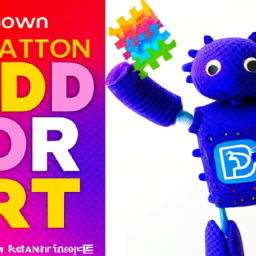How Marketing Automation Fosters Customer Loyalty
Customer loyalty is an important aspect of any successful business. When customers feel a strong connection to a brand, they are more likely to continue buying from that brand and even become enthusiastic brand advocates. Marketing automation plays a crucial role in fostering customer loyalty. In this article, we will explore the various ways in which marketing automation can contribute to building and maintaining customer loyalty.
1. Personalization
One of the key components of marketing automation is the ability to personalize communication with customers. Through automation, businesses can segment their customer base and send targeted messages based on each individual’s preferences and behaviors. By delivering relevant content and offers, customers feel understood and valued, which strengthens their loyalty to the brand.
For example, imagine you’re a customer who frequently purchases running shoes from a particular sports retailer. With marketing automation, the retailer can send you personalized emails showcasing new running shoe arrivals, sales, or even articles on proper running form. This level of personalization shows that the retailer understands your interests and needs, ultimately increasing your loyalty towards their brand.
2. Timely and Consistent Communication
Marketing automation allows businesses to communicate with their customers at the right time and with consistent messaging. Automated email campaigns triggered by specific events or actions can keep customers engaged without overwhelming them. By utilizing automated workflows, businesses can guide customers through their journey, ensuring they receive the right information at each stage.
For example, let’s say you recently subscribed to a software service. Through marketing automation, you receive a series of onboarding emails that introduce you to the various features and benefits of the software. This timely and consistent communication helps you feel supported and confident in your decision, strengthening your loyalty to the company.
3. Nurture and Retain Customers
Marketing automation helps businesses nurture relationships with their existing customers by providing ongoing value and support. For example, automated loyalty programs can reward customers for their continued engagement and purchases. By offering exclusive discounts, personalized recommendations, and sneak peeks of upcoming products, businesses can make customers feel special and motivated to remain loyal.
Additionally, marketing automation allows businesses to identify customers who may be at risk of churning and proactively address their concerns. By delivering targeted content or special offers to these customers, businesses can re-engage them and prevent churn.
4. Data-Driven Insights
Marketing automation platforms provide businesses with valuable data and insights into customer behavior. By tracking customer interactions, businesses can understand what drives loyalty and determine which marketing strategies are most effective. With these insights, businesses can refine their approach and create more personalized, targeted campaigns to further foster loyalty.
For example, by analyzing data from an automated email campaign, a business may discover that customers who receive a personalized birthday offer have a higher chance of making a purchase. Armed with this knowledge, the business can continue to leverage personalized birthday offers to drive loyalty and increase sales.
In Conclusion
Marketing automation plays a critical role in fostering customer loyalty. By enabling personalization, delivering timely and consistent communication, nurturing and retaining customers, and providing data-driven insights, businesses can build stronger relationships with their customers. By investing in marketing automation, businesses not only increase customer loyalty but also drive long-term growth and success.











